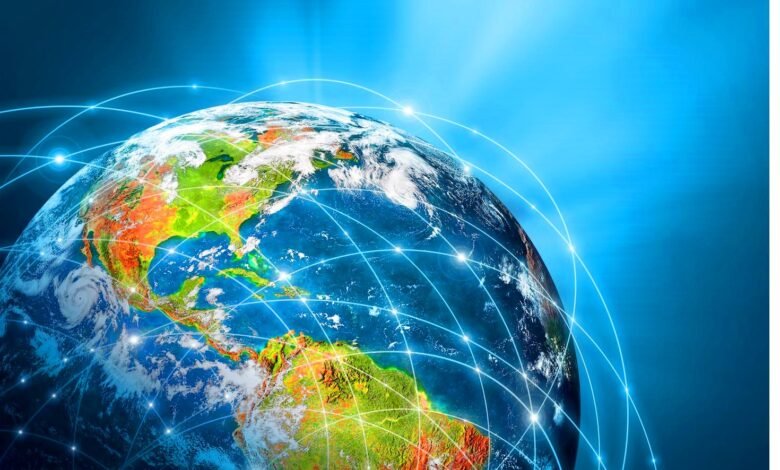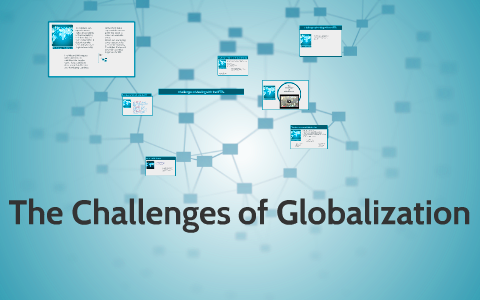Globalization: Challenges and Opportunities

Globalization is a multifaceted phenomenon that has transformed the world in significant ways over the past few decades. It is characterized by the increasing interconnectedness and interdependence of economies, societies, and cultures across the globe. This article explores the challenges and opportunities presented by globalization in various spheres of human activity.
Historical Background
Early Origins
The roots of globalization can be traced back to ancient trade routes such as the Silk Road, which facilitated the exchange of goods and ideas between civilizations. However, it was during the European Age of Discovery in the 15th century that globalization began to take shape on a global scale through exploration, colonization, and trade.
Modern Globalization
The modern phase of globalization emerged in the late 20th century with the liberalization of trade and investment policies, leading to increased economic integration and global trade flows. The advent of digital technology and the internet further accelerated this process, shrinking the world and enabling instant communication and transactions across continents.
The Impact of Globalization
Globalization has had profound effects on economies, societies, cultures, and the environment worldwide.
Economic Impact
One of the primary drivers of globalization has been economic integration, leading to increased trade, investment, and capital flows between countries. While globalization has contributed to economic growth and development in many parts of the world, it has also exacerbated economic inequalities between and within countries.
Social Impact
Globalization has facilitated the movement of people across borders, leading to increased cultural exchange, diversity, and social integration. However, it has also resulted in social challenges such as migration, displacement, and cultural tensions as societies grapple with issues of identity, diversity, and integration.
Cultural Impact
The spread of global media, entertainment, and consumer culture has led to a homogenization of culture in many parts of the world, eroding local traditions, languages, and cultural practices. This has raised concerns about the loss of cultural diversity and the dominance of Western values and lifestyles.
Environmental Impact
Globalization has also had significant environmental consequences, including increased carbon emissions, deforestation, pollution, and resource depletion due to intensified global production and consumption patterns. Climate change, biodiversity loss, and environmental degradation are among the most pressing challenges exacerbated by globalization.
Challenges of Globalization
Despite its benefits, globalization also poses several challenges that need to be addressed.

Economic Inequality
Globalization has widened the gap between the rich and the poor, both within and between countries, leading to rising income inequality, social unrest, and political instability. The concentration of wealth and power in the hands of a few multinational corporations and wealthy individuals has fueled social discontent and calls for greater economic equity.
Cultural Homogenization
The spread of Western culture and values through global media, entertainment, and consumerism has led to the erosion of indigenous cultures and traditional identities, raising concerns about cultural imperialism and the loss of cultural diversity. Local languages, customs, and traditions are increasingly marginalized in a globalized world dominated by Western ideals of beauty, success, and progress.
Exploitation of Labor
Globalization has enabled the outsourcing of labor to countries with lower labor costs and weaker labor protections, leading to the exploitation of workers in developing countries. Sweatshops, child labor, and poor working conditions are common in many industries, as multinational corporations seek to maximize profits by minimizing labor costs and regulatory oversight.
Environmental Degradation
The relentless pursuit of economic growth and consumption fueled by globalization has led to environmental degradation on a global scale. Deforestation, pollution, habitat destruction, and climate change are some of the consequences of unsustainable production and consumption patterns driven by global markets and consumer demand.
Read More: Navigating Today’s Job Market: Strategies for Employment Success
Opportunities of Globalization
Despite its challenges, globalization also offers opportunities for economic, social, and cultural development.
Economic Growth
Globalization has facilitated the flow of goods, services, and capital across borders, leading to increased economic growth and prosperity in many parts of the world. Trade liberalization, foreign direct investment, and technological innovation have fueled economic development and poverty reduction in emerging economies.
Access to Global Markets
Globalization has opened up new markets and business opportunities for companies to expand their operations internationally. Small and medium-sized enterprises (SMEs) can now access global markets through e-commerce platforms and digital marketing, leveling the playing field and promoting entrepreneurship and innovation.
Technological Advancements
The digital revolution and advancements in information and communication technology (ICT) have transformed the global economy and society, enabling instant communication, data sharing, and collaboration across borders. Digital platforms, social media, and e-commerce have revolutionized how we work, communicate, and conduct business in a globalized world.
Cultural Exchange and Diversity
Globalization has facilitated cultural exchange and dialogue between people from different countries and backgrounds, promoting understanding, tolerance, and mutual respect. The sharing of ideas, values, and cultural expressions through art, music, literature, and cuisine enriches our lives and fosters cross-cultural understanding and appreciation.
Balancing Challenges and Opportunities
To harness the benefits of globalization while addressing its challenges, policymakers, businesses, and civil society need to adopt a balanced and inclusive approach.
Policies and Regulations
Governments play a crucial role in shaping the rules and regulations governing global trade, investment, and labor markets to ensure that globalization benefits all segments of society and protects the environment. Fairtrade agreements, labor standards, environmental regulations, and social safety nets are essential for promoting inclusive and sustainable development in a globalized world.
Ethical Considerations
Businesses have a responsibility to uphold ethical standards and corporate social responsibility (CSR) practices in their operations and supply chains to ensure that globalization benefits workers, communities, and the environment. Fair wages, safe working conditions, and respect for human rights are essential for building sustainable and ethical global supply chains.
Sustainable Development Goals
The United Nations Sustainable Development Goals (SDGs) provide a roadmap for addressing the social, economic, and environmental dimensions of globalization and promoting sustainable development for all. By aligning global efforts with the SDGs, governments, businesses, and civil society can work together to build a more equitable, inclusive, and sustainable world.
Read More: Immigration Reform: Balancing Security and Compassion
Conclusion
Globalization presents both challenges and opportunities for humanity in the 21st century. While it has facilitated economic growth, cultural exchange, and technological advancements, it has also exacerbated economic inequalities, cultural homogenization, and environmental degradation. By addressing the challenges of globalization through inclusive policies, ethical business practices, and sustainable development strategies, we can create a more equitable, inclusive, and sustainable world for future generations.
FAQs
What are the main challenges of globalization?
Globalization poses challenges such as economic inequality, cultural homogenization, exploitation of labor, and environmental degradation.
How can governments address the challenges of globalization?
Governments can address the challenges of globalization through policies and regulations that promote inclusive and sustainable development, fair trade agreements, labor standards, and environmental regulations.
What role do businesses play in globalization?
Businesses play a crucial role in globalization by expanding their operations internationally, accessing global markets, and driving economic growth. However, they also have a responsibility to uphold ethical standards and corporate social responsibility practices.
How can individuals contribute to a more sustainable globalization?
Individuals can contribute to a more sustainable globalization by making conscious consumption choices, supporting ethical businesses, advocating for social and environmental justice, and participating in community-based initiatives.
What are the benefits of globalization?
Globalization offers benefits such as economic growth, access to global markets, technological advancements, and cultural exchange and diversity.











